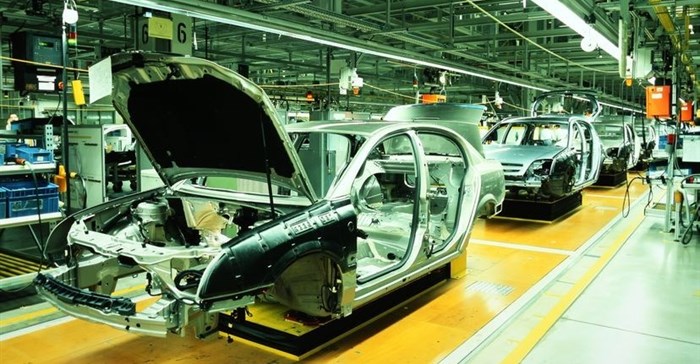






This year, 800 auto executives from 38 countries gave their insights to KPMG on topics such as business model disruptions, connectivity and digitalisation, customer data, new products and who will be the winners or losers in this industry currently undergoing massive change. To give further insights and ‘reality checks’ to the industry, KPMG also surveyed over 2,100 customers from around the world.
According to KPMG’s GAES, major business model disruption is extremely likely for around 10 times more of the auto executives surveyed this year compared to last year - 82% of the auto executives surveyed estimate a major business model disruption in the next five years to be extremely likely or somewhat likely.
Dieter Becker, KPMG’s global head of automotive, comments: “Nothing will stay as it is in the automotive industry. Ever-changing service and data-driven business models should be paving the way towards owning, securing and keeping the key stakeholder – the customer. In order to meet their current needs, becoming a customer-oriented service provider is of utmost importance. One way traditional car makers can add value and offer customised client experiences is by leveraging the massive amounts of data that both the car and its driver(s) produce.”
However, according to the KPMG GAES report, the majority of respondents say the use of data and the application of informational engineering is still at the very beginning stages. Around 70% of the auto executives’ state that data use is in an early stage, some even state that there is no usage at all.
“This year the views of auto executives with regards to who will retain the customer relationship has shifted. Vehicle manufacturers’ views have dropped substantially from 72% to 33% whilst their views on ICT company ownership has increased from 4% to 22%,” according to Maile.
“Indeed, customers are aware of the value of their data and KPMG’s GAES results show that for these stakeholders, cash is king. When given the option to rank several response choices 82% of the customer respondents across all age groups say that monetary benefits for their data is the most attractive benefit desired; followed closely by ‘customer incentive schemes’ (75%), and individualised service and customer experience over the whole customer lifecycle (71%),” commented Becker.
Auto executives place high importance across all benefits they would offer to customers for their data, which suggests that they are unsure of where to place their bets. Different from customers, auto executives place monetary benefits (82%) behind equal figures for individualised service and customer experience over the whole customer lifecycle and ‘customer incentive schemes’ (88% for both).
The survey results also show that receiving nothing in exchange for data is not attractive to customers (30% – fourth place), yet still 43% of the executives surveyed believe doing nothing is acceptable.
Sales growth in emerging markets being the key trend over the last three years has only relatively lost in importance in the light of the key trend connectivity and digitalisation. However, just as the pressure put on auto companies by the regulator has not vanished, being present in emerging markets is still a fundamental success factor for auto companies. In fact, for most auto companies it is volume-wise the most important pillar of their success.
“Emerging markets have recently suffered greatly due to the growth of the mature economies. With their exchange rates showing weakness and increases in interest rates, the consumer is under severe financial pressure, receiving little benefit from the lower oil price and affordability is out of reach for many customers,” adds Maile.
Auto executives responding to this year’s survey are projecting that Toyota will have the largest market share among Original Equipment Manufacturers (OEMs) in the next five years (with 58% expecting an increase). Toyota has made the biggest leap ahead among OEMs – moving from ninth place last year to first this year. Yet the competition is supremely strong: GAES respondents place BMW and Volkswagen just one to two points behind (57% and 56% respectively).
Last year’s owner of the top spot, Hyundai, has fallen to fourth place with 50% of respondents expecting an increase in market share. In general, most auto executives responding to the survey are optimistic and only few expect a decrease in any of the OEMs market share. For many of the OEMs, respondents see stability in their future. This year, according to KPMG’s GAES, BMW and Toyota will also be the leaders in the fields of e-mobility and autonomous driving. They are also ranked in the top spots as being the most groundbreaking innovators in the future followed by Honda, Ford and Tesla.
“Some may ask how it is possible that two traditional players are occupying the first two ranks in fields of electro mobility, ahead of Tesla, the former master of e-mobility. The results are not surprising, since BMW has established a strong e-mobility brand with their i8 and i3 models, which are leading the way for electric cars. Toyota is currently building up a new future oriented and innovative image with the fuel cell model Mirai to which customers and media had a positive reaction. However, although fully electric vehicles like the Tesla Model S/X have got a lot of attention over the last year, the total amount of fully electric vehicles and their applicability for daily use is still far away from the mainstream needs of today’s customers,” says Becker.
The executives surveyed are optimistic that traditional manufacturers will be the groundbreaking innovators in the future. However, as they are facing a new highly digitalised and connected age with numerous new players, OEMs seem to be aware that these developments are not (yet) reflected in their business models.
However, by having a closer look at the view of the different stakeholder groups participating in the survey, it is most surprising that OEMs themselves expect ICT companies (35%) to be the most groundbreaking innovators in the future – not traditional automotive companies, and therefore not themselves. The executives from the ICT companies on the other side are convinced that they themselves will be the leaders in fields of innovation over the next five years (53%) – far ahead of all other players or market entrants.
“We believe these changes will help to convert the industry into the next development cycle and we should see these changes as an opportunity rather than a risk,” concludes Becker.
All the survey data is now available in an interactive online tool where users can compare statistics by country, region, question asked and more.